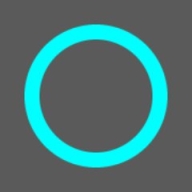

Portnox and Check Point Harmony SASE are key players in network security, focusing on network access control and secure access service edge, respectively. Check Point Harmony SASE is seen as more comprehensive with its extensive feature set, while Portnox is known for pricing simplicity and strong support.
Features: Portnox offers seamless integration and real-time network visibility for robust network access control, profiling endpoints, and intuitive dashboards for easy navigation. Check Point Harmony SASE delivers a single, unified platform encompassing Zero Trust Network Access, secure web gateway capabilities, and centralized management, enhancing user experience and security measures.
Room for Improvement: Portnox could enhance scalability options and user interface aesthetics for better user experience, and expand its service to offer broader security features. Check Point Harmony SASE might improve on detailed real-time analytics and simplify policy management, and provide more flexible customization options to cater to diverse organizational needs.
Ease of Deployment and Customer Service: Check Point Harmony SASE boasts swift, cloud-based deployment providing flexibility and efficient scalability, featuring comprehensive support options. Conversely, Portnox ensures users enjoy an intuitive setup process complemented by dedicated customer service, enhancing overall user satisfaction.
Pricing and ROI: Portnox is recognized for transparent pricing and lower setup costs, securing strong ROI by simplifying network access management. Despite relatively higher costs, Check Point Harmony SASE offers significant ROI through its comprehensive security suite, which bolsters long-term security architecture.
Check Point Harmony SASE (formerly Perimeter 81) blocked access to those URLs at the network level before users could click through.
We are saving 40% of our time, which is good.
If you were moving from a traditional on-premise NAC that was 100% managed by the IT department, there would be great savings in going to a cloud-based NAC with Portnox.
I would rate support 10 out of 10.
People working really hard, listening to every issue and request, and replying within hours.
The main area needing improvement is the technical knowledge of support staff.
They respond very immediately and provide detailed, amazing support.
I was seeing weird things, and they were able to explain things to me and help me quickly find a resolution.
The cloud-native model ensures we are not tied to any specific location or hardware, which has been a great game changer in terms of agility.
I would rate it nine out of ten for scalability.
Check Point Harmony SASE's scalability is good; it can handle growth easily, allowing me to easily add another region and gateway to have more people join in.
There are some lags and glitches with connectivity, so I would rate the stability as between seven or eight out of ten.
After the last improvement, I can say it is much more stable now.
Check Point Harmony SASE is stable most of the time, but there are still some issues that are hard to troubleshoot.
The product itself is available and its uptime is 100%.
In the four years that I used Portnox, if it crashed or the server crashed, that would not have been more than once.
If there is a version one and another version, the communication between the organization using it and Portnox should be firm so they can coordinate effectively.
A local data center in Turkey would enhance the product, as currently, our Internet traffic goes to another country, which is problematic for us.
One area for improvement is integration with third-party identity providers.
The product is lacking features that other competitors have, making it quite challenging to migrate customers to this solution because it feels very much unfinished.
Ideally, we should be able to search for any MAC address in the database, regardless of its authentication status, to see all its associated groups and potential conflicts.
When I'm doing filtering at times, it doesn't filter the items properly.
They don't have much support during Asia Pacific hours.
Cost efficiency is a consideration, as SASE products are not the cheapest security products.
The cost is a bit expensive for most users.
It is a bit expensive.
If you compare Portnox with all other well-known standard products, it is the cheapest.
The pricing is a bit high, possibly due to the cloud features and running instances across regions like the US, Asia, and Europe.
You are charged according to the number of users.
The firewall management is the most valuable feature for me.
The Zero Trust Network Access (ZTNA) feature is a major highlight as it gives users seamless and secure access to internal resources without requiring a full-blown VPN, which improves both security and user experience.
The Zero Trust and segmentation have helped my team and our customers significantly because we are able to protect every scope and allow the work-from-home users to access internal resources while passing through a threat prevention gateway, ensuring that everything is safe.
It's notable how Portnox has improved operational efficiency.
It is a very robust application because three teams use that part: the network team, the security team, and the support people.
It is very easy to implement on our current network hardware.
| Product | Market Share (%) |
|---|---|
| Check Point Harmony SASE (formerly Perimeter 81) | 7.0% |
| Portnox | 1.0% |
| Other | 92.0% |


| Company Size | Count |
|---|---|
| Small Business | 53 |
| Midsize Enterprise | 18 |
| Large Enterprise | 15 |
| Company Size | Count |
|---|---|
| Small Business | 12 |
| Midsize Enterprise | 5 |
| Large Enterprise | 7 |
Check Point Harmony SASE, formerly Perimeter 81, offers robust security features like split tunneling, MFA, and Zero Trust Network Access focused on secure remote access and optimized connectivity for remote teams.
Check Point Harmony SASE delivers advanced security through a user-friendly interface, efficient VPN connections, and a centralized management console. It enhances security with real-time threat intelligence from ThreatCloud and traffic management via built-in optimization. Firewall as a Service and Secure Web Gateway safeguard against unauthorized access and phishing. While users seek enhanced networking customizations and better integration with identity providers, there's an emphasis on improving reporting, real-time analytics, and policy management. Requests also include a Chrome extension, traffic balancing, and simplified configuration to address some resource-intensive aspects.
What are the key features of Check Point Harmony SASE?
How can organizations benefit from using Check Point Harmony SASE?
Check Point Harmony SASE is used across industries for secure remote access and connectivity, protecting sensitive data, and managing access to corporate resources. It is ideal for those with hybrid cloud models and requires comprehensive security measures combined with existing IT infrastructures to meet specific industry demands.
Portnox offers Network Access Control to manage user access based on policy, securing both wired and wireless networks while ensuring compliance. It supports endpoint security and prevents unauthorized access across industries such as banking, IT, and energy distribution.
Designed for both on-premises and cloud deployments through CORE and Clear versions, Portnox delivers a straightforward interface aiding in deployment. It integrates effectively with equipment from multiple vendors and security solutions, enhancing endpoint profiling and ensuring compliance. Portnox provides real-time alerts and network activity insights, bolstered by excellent technical support and scalability. It also automates monitoring, reducing the need for dedicated resources while offering a comprehensive view of network activities.
What are the essential features of Portnox?
What benefits should users focus on in Portnox reviews?
Across industries like banking and IT, organizations rely on Portnox for endpoint profiling and compliance, ensuring remote worker security. Electricity distributors leverage its robust features for managing secure network access. Improvements like better third-party integration, enhanced graphical interface, and expanded support are desired, along with licensing adjustment and expanded use of AI and behavioral analytics.
We monitor all ZTNA reviews to prevent fraudulent reviews and keep review quality high. We do not post reviews by company employees or direct competitors. We validate each review for authenticity via cross-reference with LinkedIn, and personal follow-up with the reviewer when necessary.